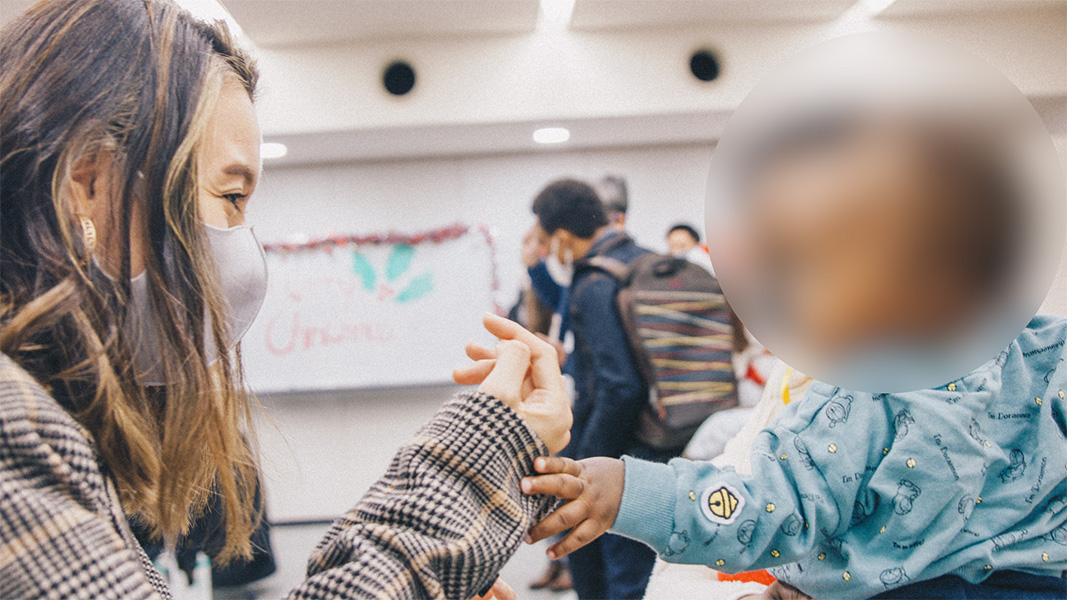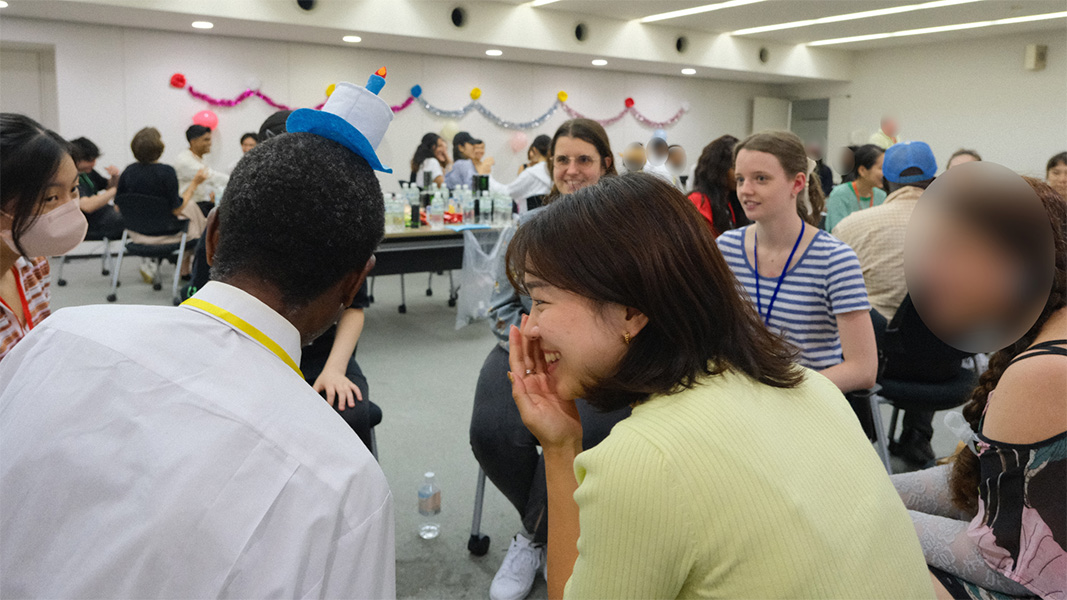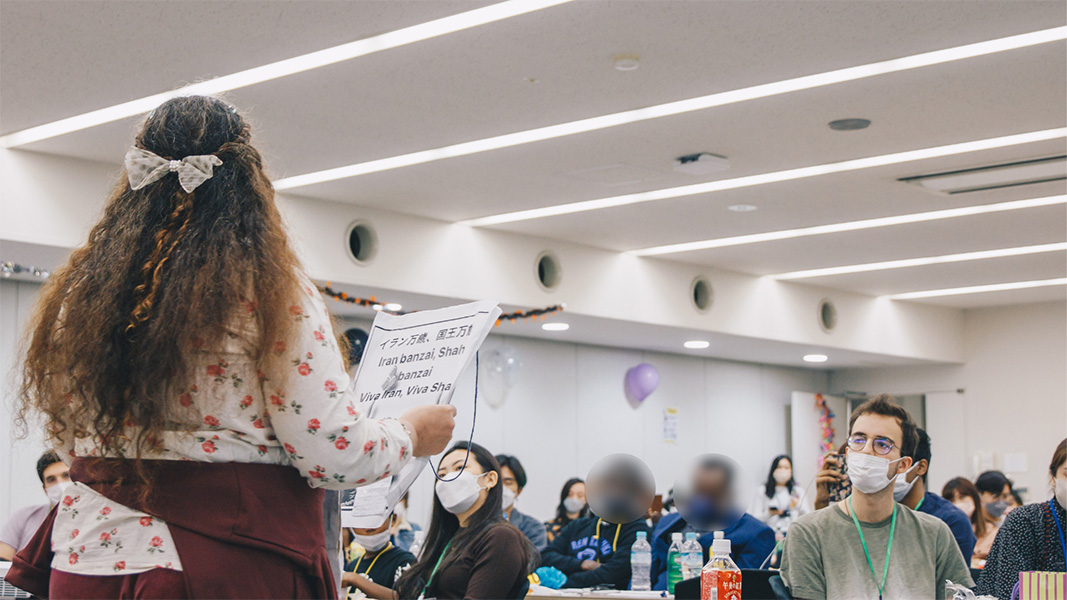Making Refugees Feel at Home in Japan
Japan annually allocates large donations to international organisations and Japanese NGOs’ overseas activities to support refugees outside its borders, but there are few organisations that focus on supporting refugees already in Japan. As the number of refugee applicants grows – and as the number of those not accepted due to restrictive immigration policies grows as well – the bureaucratic procedures increasingly treat people as ‘cases’ rather than as people to be granted asylum, or until the decision is made, as people to support. This interim support is one of the fundamental requirements of all signatories to the 1951 Refugee Convention, which Japan signed in 1981.
Much of the care of asylum seekers, until their cases are reviewed, is outsourced to the few refugee support groups. It usually takes almost three years just for their first application to be reviewed, and then approximately only 1.7 percent between 2017 and 2022 were accepted. There are many asylum seekers who cannot go back to their home country, and thus they are caught in limbo. Those who work in these support organisations – knowing the poor chance of getting refugee recognition and understanding the lack of support resources available to refugees – are often quite pessimistic, a feeling that is communicated to asylum seekers.
While refugees do not expect much sympathy or care from the immigration officers, more perplexing is the coldness that many report feeling from the non-profit and non-governmental supporters in Tokyo. Even when providing aid, a lot of the supporters and volunteers from this civil society sector personally distance themselves from refugees – the very people they are there to support – by not making any attempts to engage directly with them.
Ibasho: creating a home in the host society
For any refugee fleeing persecution, ‘home’ is a complex and often contested notion that differs by nationality, age, gender, and personal biography. ‘Home’ includes material housing but is also related to the immaterial and intangible senses of belonging and identity. It can also encompass ‘familiarity,’ an in-depth knowledge of the place and people built over time, as well as feelings associated with safety, security, comfort, privacy, and connection. But the characteristics of home are more complicated for those who experience forced migration. What if one cannot find a sense of ‘home’ – a feeling of familiarity, safety, and connection – in their host lands?

Fig. 2: Bonding at SRSG's Café.
Home is not something that can be taken for granted or assumed. It is an ongoing process, a set of practices with a goal of finding connectedness, belonging, and safety. But in the most fundamental sense, the very definition of refugee means being away from, and temporarily without, a home, seeking refuge in a place that is not home. Even without material stability and geographical fixity, refugees and other displaced people still seek these affective qualities – in Japan, we might say ‘anzen’ (安全, physical safety) and ‘anshin’ (安心, emotional security). This is exactly what the word ibasho (居場所) points to.
Ibasho is a term that became popular through the neoliberal fragmentation of family and work during the 1990s in Japan. It was a way to identify a collection of immaterial and affective needs that were once taken for granted: the personal, social, and economic grounding in a secure (if at times stifling) Japanese post-war society. Ibasho is a term that has no exact equivalent in English as it is used colloquially.
Scholars have defined ibasho in multiple ways: “a place where one can feel secure and be oneself’, ‘a place or community where one feels at home” or even “any place, space, and community where one feels comfortable, relaxed, calm, and accepted by surrounding people.” It is interrelated to one’s well-being, identity, and belonging. Some have pointed out that ibasho has three elements: it is a physical or virtual place where one feels comfortable, accepted, and secure, where good relationships are found, and marginalised people can envision a future for themselves in the current society. At best, studies have depicted how ibasho can lead to empowerment, serving as a refuge through which the excluded and oppressed can change their society.

Fig. 3: Celebrating a refugee's
birthday at SRSG's Café.
Now with the rise of foreign residents and transnational marriages in Japan, the idea of ibasho has allowed scholars to recognise and reconceptualise the problems that multicultural students and immigrants face, especially linked to their marginalisation from education and housing in Japan. However, studies on ibasho for refugees in Japan – those who seek asylum by crossing international borders – remain scarce.
Sophia Refugee Support Group: a home for female refugees
Refugees are in great need of connection, respect, dignity, and belonging in the unfamiliar and foreign environment of their host country. Sophia Refugee Support Group (SRSG), a student-run volunteer group based at Sophia University in Tokyo, seeks to provide this. In SRSG, we realised that what is missing alongside other direct material support, such as food deliveries and Japanese language classes, is a sense of belonging and place. In short, we seek to provide ibasho.
With the goal of creating a more welcoming Japanese society regardless of one’s race, nationality, ethnicity, religion, and gender, SRSG has seven main activities to support refugee-migrants in Japan: awareness raising, food deliveries, hygiene deliveries, Japanese language classes, translations for refugee applications, and immigration detention centre visits. To create a sense of ibasho where the socially marginalised feel accepted, safe, and connected, SRSG has also been holding informal social gatherings called ‘Refugee Cafés’ since its establishment in 2017. These informal get-togethers with 40 to 50 refugees and students are held monthly on Sophia University’s campus and have a different theme depending on the month. During these Cafés, people are given the opportunity and the safe space to socialize, share, and create new friendships through food and games: a chance to bridge socially and culturally different realities.

Fig. 4: Female Iranian refugee
singing in Persian.
Since its establishment, SRSG has supported nearly 300 refugees across Japan. They usually find us by word-of-mouth, through churches and institutional refugee support organisations. Among this number, most of the refugees in Japan, including those who receive SRSG’s support, are male. Nevertheless, SRSG strives to create a space for our female refugee friends through these Cafés, which often become the only place in their lives where they can interact with others. The majority of SRSG’s student members are female, so we are able to create intimate gendered bonds across otherwise contrasting life experiences. It was our female members who realised the need for personal hygiene care, including sanitary napkins, during the COVID-19 pandemic. Consequently, we began the assembly and delivery of hygiene products to those who could not leave their homes, and we continue sending out these packages today.
Cafés are also a place where the women refugees can more easily talk with refugee men. As other places, including the scattered refugee communities, are often dominated by men, Cafés serve as a place where refugees, both women and men, can openly speak about their experiences with compatriots but also with members of the host society, on an equal footing. Additionally, many student members in SRSG are mixed-race (ハーフ, hāfu), have experience crossing borders and returning to Japan (帰国子女, kikokushijo), or are exchange students (留学生, ryūgakusei). While we are in no way comparing the scope of the challenges of our experiences to that of our refugee friends, the experience of displacement and alienation is not completely unfamiliar to most of us.
During SRSG’s Cafés, people are given the time and platform to share and listen to other participants’ stories about their homelands–including Japan–and their current situation. An Iranian refugee spoke about the brave young women in her home country who are challenging religious oppression. Another refugee shared updates on the 2021 military coup d’état that continues to affect Myanmar. While to most people in Japan, these are far-away happenings, such events are a reality for our refugee friends and their loved ones. Sharing stories is an opportunity to talk about loved ones and share some of the reasons they have ended up so far away from home.
Christina Fukuoka graduated from Sophia University, Japan and will be a graduate student at EMMIR (an Erasmus Mundus programme) from 2024. Email: christina.f.srsg@gmail.com
David H. Slater is a Professor of Cultural Anthropology, Sophia University, Japan. Email: dhslater@gmail.com
This article is a shortened version of an article originally published by Melbourne Asia Review, Asia Institute, University of Melbourne.